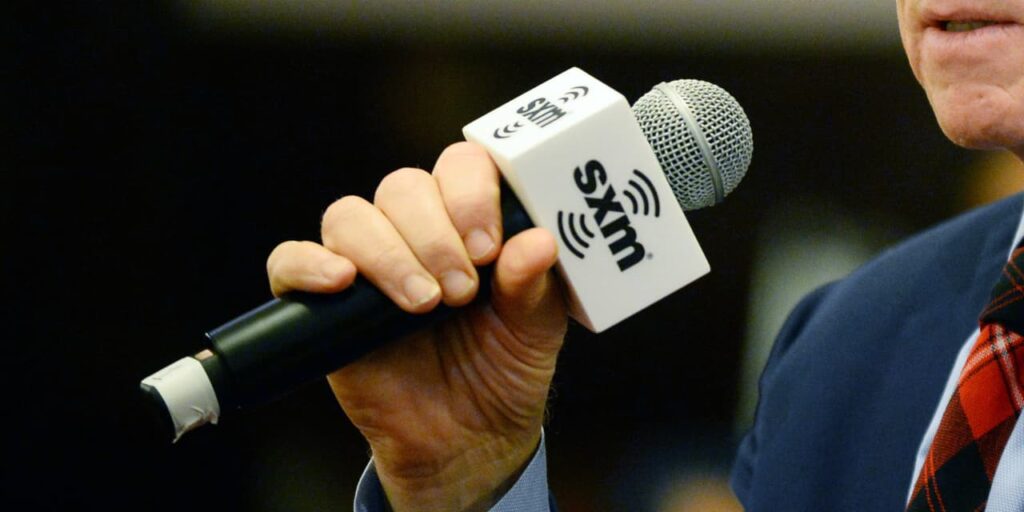The
Liberty SiriusXM
trade seems too easy to resist, and has attracted a slew of notable hedge funds including Baupost Group, Millennium Management and Point72.
Berkshire Hathaway
is the largest participant and it added to its holding during January.
The trade involves buying
Liberty SiriusXM
Holdings, a tracking stock issued by Liberty Media for Liberty’s 84% stake in
Sirius XM Holdings,
the satellite radio company. Liberty Media is controlled by media mogul John Malone.
Baupost is headed by value investor Seth Klarman, Point72 is Steve Cohen’s investment vehicle and Millennium is a big alternative asset manager led by Israel Englander. All were sizable holders of the tracking stock on Sept. 30, the latest reporting date for institutional investors.
Berkshire holds about 21% of the tracker—some 70 million shares worth about $3.2 billion—and it purchased about seven million shares during January. Some Berkshire watchers believe the Liberty Sirius XM holding is managed by Ted Weschler, who along with Todd Combs runs about 10% of the company’s $350 billion equity portfolio. CEO Warren Buffett handles the rest.
Berkshire continued to add to its holding in recent days. it purchased about 1.4 million shares of the Liberty SiriusXM class A and K stock from Tuesday through Thursday, according to form 4 filings with the Securities and Exchange Commission late Thursday. The recent buying indicates that Berkshire continues to like the trade and it may continue to purchase more of the tracking stock.
Here’s why investors are so excited. Liberty SiriusXM Holdings trades at a discount of about 30% to the value of its stake in Sirius XM. Under the terms of a deal reached by Liberty Media with Sirius XM in December, the tracking stock effectively will be merged with Sirius XM and the tracker holders will get stock in “new” Sirius XM.
Here’s the math. Liberty Sirius XM has two liquid classes of tracking stock traded under tickers LSXMA and LSXMK. The voting A shares finished Thursday at $30.98, down 0.5% while the nonvoting K shares ended at $30.94, off 0.6% Sirius XM finished the session at $5.37, down 1%. Both classes of the tracker are higher Friday with the nonvoting shares up 0.8% to $31.18 and the voting shares up 0.7% to $31.20. Sirius XM stock is off 0.4% to $5.35.
Liberty Sirius XM holders stand to get 8.4 shares of new Sirius XM stock for each of their shares under the terms of the deal while existing Sirius XM holders will see a one-for-one swap.
The value of the stock to be received by the Liberty Sirius XM holders under the complex deal is about $45 per share (8.4 times $5.37). The deal is due to close early in the third quarter.
So investors who buy the tracker at $31 stand to get $45 in Sirius XM stock in about six months.
Several Wall Street analysts are bullish on the tracker. Jeff Wlodarczak, an analyst at Pivotal Research Group, wrote recently that the tracker has the “most attractive risk/reward in our coverage.”
He has a $47 price target on the tracking stock, “which implies 50% upside from current levels even if SIRI trades flat until the close of the announced deal.”
Big investors are waiting for a payoff from the tracker, which has badly trailed the
S&P 500
in the past five years as Sirius XM stock trading below where it traded in 2019.
So why does this opportunity exist? It’s hard for arbitragers to buy the tracking stock and sell short Sirius XM to lock in the spread because of high short interest in Sirius stock.
There is a thin float of about 16% in Sirius XM stock and short interest equates to nearly 30% of that float. Wlodarczak doesn’t recommend that investors do a pair trade and buy the tracking stock and short Sirius XM to capture the spread. While that trade looks tempting, assuming investors can borrow Sirius XM stock, it exposes them to potential short squeezes in Sirius XM stock like one last summer that briefly drove up the stock to $8 a share.
Another issue is that Sirius XM could be overvalued. The company now has a market value of $20.5 billion-plus net debt of about $9 billion. It’s valued more than 10 times projected 2024 earnings before interest, taxes, depreciation, and amortization of $2.8 billion.
That’s a premium to
Comcast,
now valued about seven times estimated 2024 Ebitda. Comcast probably has the better business—broadband.
Sirius XM’s growth has stalled—its paid subscribers were flat year over year in the third quarter at about 32 million and its revenue was also about unchanged. Sirius’s subscriber base skews older with Berkshire CEO Warren Buffett, 93. a fan of the Siriusly Sinatra station that plays standards.
Wlodarczak projects about $1.3 billion in free cash flow this year. He has a Hold rating on Sirius and a $5.30 price target.
Citi’s Jason Bazinet, a Sirius bear, has a Sell rating and $4.10 price target, which equates to about nine times his 2024 Ebitda estimate.
The Sirius stock price implied by the current track price is about $3.70 (3.70 times 8.4 equals about $31).
The risk is that once all Sirius XM stock is distributed to the tracker holders, Sirius XM stock will decline sharply.
The idea is that the stock has been artificially inflated by the thin float and high short interest. Some think the true value of Sirius XM is represented by the tracking stock price and that Sirius XM stock could trade below $4 assuming the deal gets completed.
The deal reached by Liberty Media and Sirius XM was favorable to Liberty with the trackers getting nearly all the potential value uplift.
Tracker bulls see a margin of safety. “Therefore by July either LSXMA shares have to trade significantly higher and/or SIRI shares have to trade materially lower (or some combo of both),” Wlodarczak wrote recently. He thinks most of the move will be appreciation in the Liberty Sirius XM tracker.
That’s what the hedge funds and Berkshire appear to be betting on.
Write to Andrew Bary at andrew.bary@barrons.com
Read the full article here












